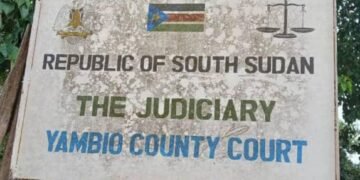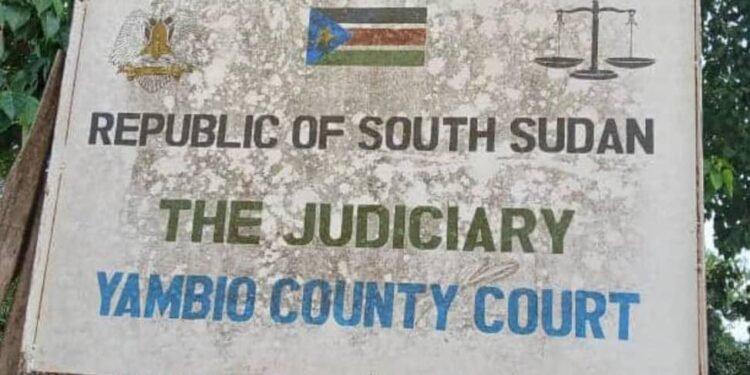South Sudan’s promise of justice for survivors of gender-based violence (GBV) is under strain, with hundreds of cases stuck in courts, exposing deep cracks in the country’s legal system.
According to the High Court in Juba, more than 291 GBV and juvenile cases were filed between January and September 2024.
Yet, activists say survivors are often left waiting years before their cases are heard, leaving them vulnerable to intimidation and traumatization.
For many women and girls, the delays feel like abandonment.
“Every month they tell me to come back, but nothing changes. My case has been pending for over a year. I feel forgotten,” said one survivor in Yambio, who asked to remain anonymous for security reasons.
Judicial officials admit that a lack of judges, limited resources, and the country’s ongoing economic crisis have slowed progress.
South Sudan’s dysfunctional judiciary, according to the UN Human Rights Commission, is fueling cycles of violence by denying survivors timely justice.
Civil society leader Victoria Taban, a legal officer working on GBV cases, warned.
“Justice delayed is justice denied. Survivors need a fast-track system. Without it, many will simply stop reporting, and perpetrators will walk free.”
In response, the government and partners such as UNDP have introduced specialized GBV courts and mobile courts to reach remote areas.
Earlier this year, Juba’s GBV Court even relocated temporarily to a prison facility to clear a backlog of over 200 cases.
While these initiatives show progress, the numbers remain daunting. UNFPA reports that 6,779 GBV cases were documented in South Sudan since 2015, with a 30% increase in 2024 alone a trend showing the urgent need for a stronger justice response.
Faith leaders have also weighed in as Bishop Eduardo Hiiboro Kussala of Tombura-Yambio Diocese called on society to treat survivors with dignity.
“Women carry the spirit of peace, just as Mary carried the hope of salvation. When justice fails them, we all fail as a nation.”
Advocates are also pushing for full implementation of the 2018 Peace Agreement’s 35% women’s representation quota, arguing that stronger women’s leadership in governance will help dismantle the culture of impunity around GBV.
South Sudan is not alone. At global forums such as the Geneva Women’s Convention and through the Maputo Protocol, African states have pledged to strengthen women’s access to justice and protection.
Activists say South Sudan must follow through on these commitments to prove that survivors’ rights are not just words on paper.
With national elections approaching, advocates are urging the government to prioritize GBV justice reform as part of its broader state-building agenda.
“If survivors see justice served quickly, it will restore faith not just in the courts, but in the country itself,” said Victoria.
Until then, thousands of women and girls remain caught in a painful waiting game where every delay deepens the wound.












